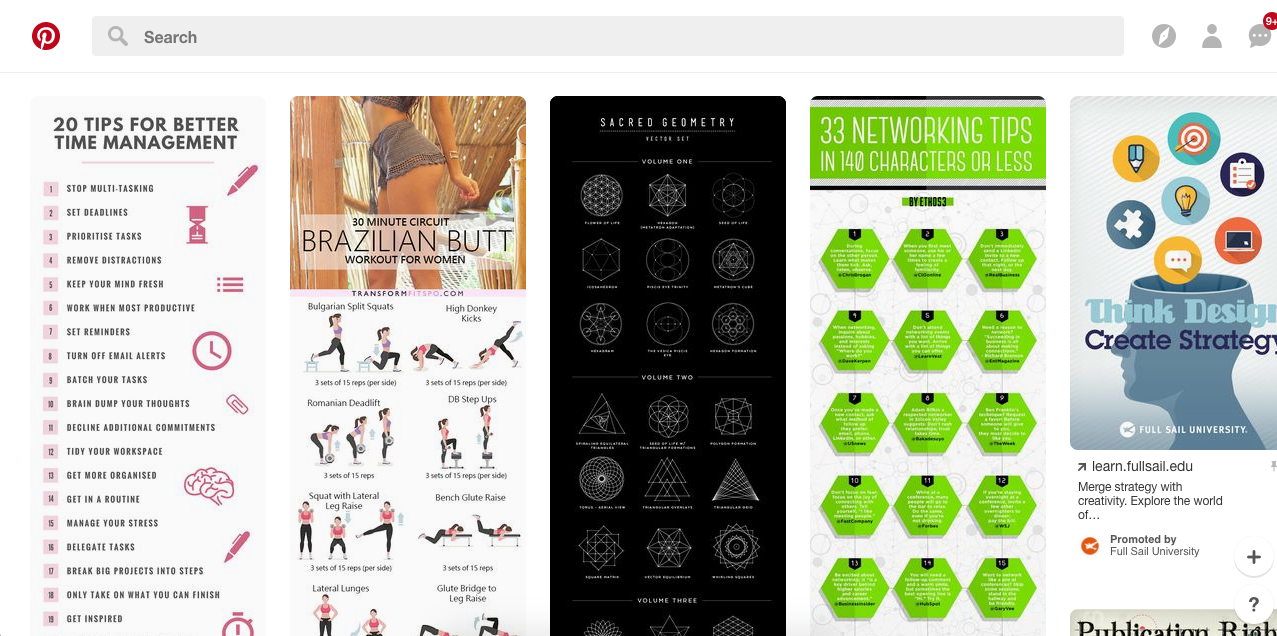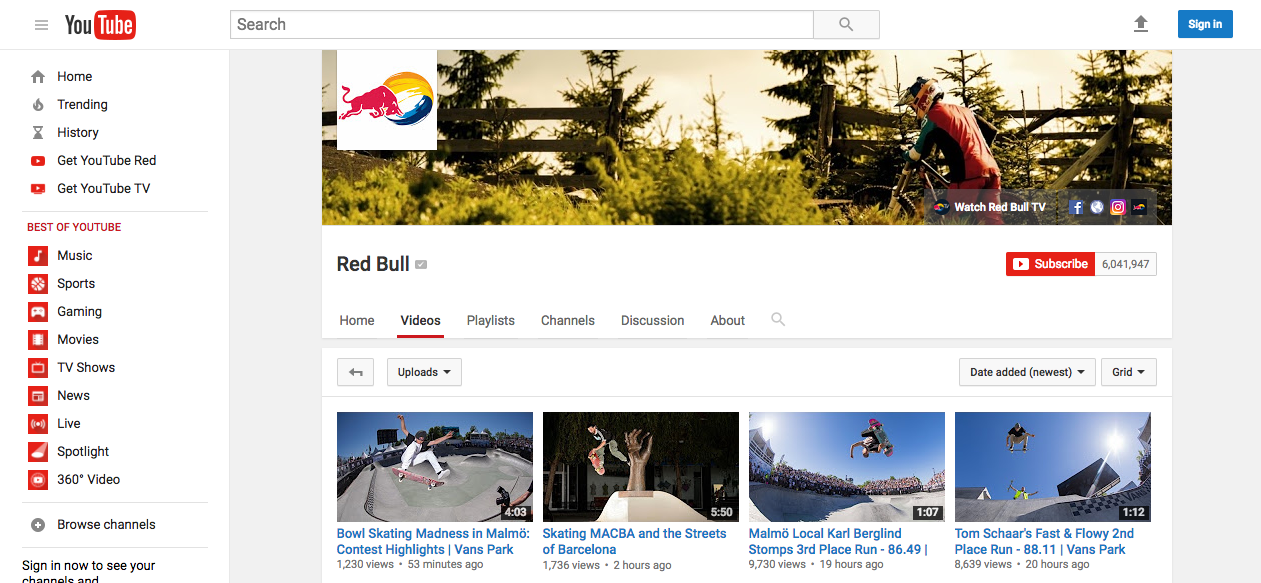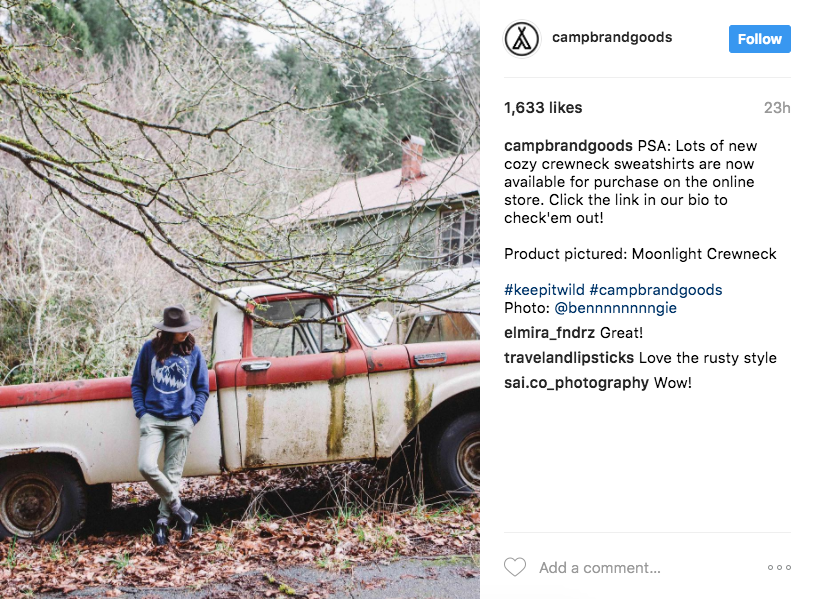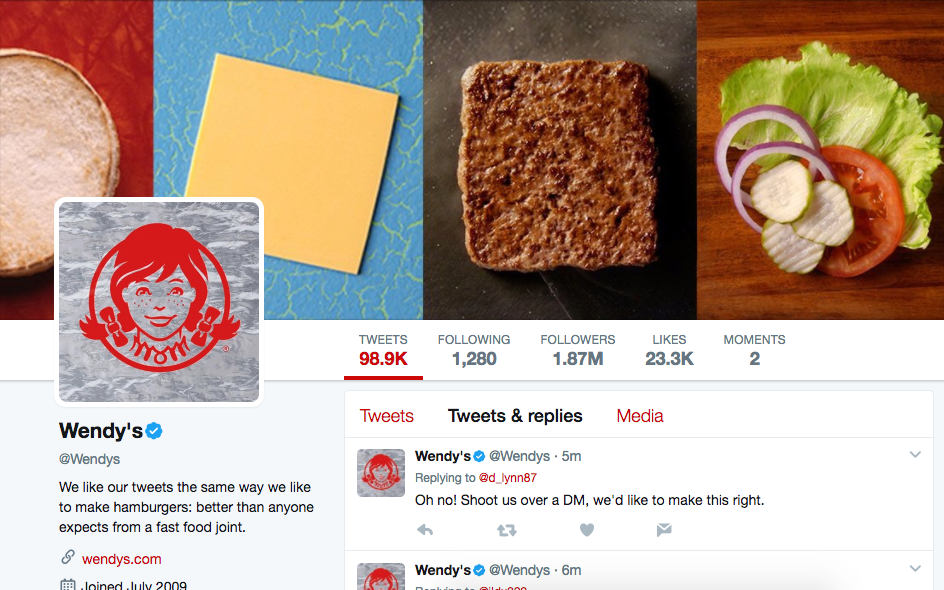Which Social Media Is Best For Marketing?
For a small business with limited resources, it certainly helps to know which is the best social media platform for marketing. Then you can focus on one and forget the rest.
And even a big business on every platform wants to know (at least they should) which one deserves the most of their attention and budget.
I’ve written about the real tangible benefits of social media marketing on Robben Media before, but here’s a quick reminder:
- 78% of consumers say that company posts on social media influence their purchasing decisions
- 77% of Twitter users feel more positive about a brand when their Tweet has been replied to
- 33% of Instagram users have purchased a product online through their phone, where non-Instagram users are 70% less likely to do so
That’s just three statistics and they already show how important social media is today.
The truth is that there is no single best social media platform for marketing. Well, there is, but it depends on your business and your audience.
Because this answer relies on context and the uniqueness of your brand’s mission, it’d be foolish to have one broad answer. It’d be wrong if a flower shop advertises the same as a technology start-up.
To find the answer for your specific company, read through a summary of each platform and its pros and cons to find out which social media platform is the best use of your time and energy.

The king of the jungle, Facebook, is the biggest and baddest social media platform on the planet. It offers unique reach and capabilities that the other platforms simply can’t match at scale.
And this is all because of Facebook’s ace in the hole: more than 1.9 billion active users. That number is incredible and something any business would be insane to ignore.
Not to mention the average American spends more time on Facebook (40 minutes a day) than any other social media.
Facebook is the winner in terms of popularity, but is it the best marketing platform for your company? See for yourself based on these pros and cons.
Pros
- It’s guaranteed a large portion of your target audience is on the app
- Facebook ads can revolutionize your business to new levels (these success stories and our experience running PPC ads prove the potential)
- Facebook Insights is a powerful tool to get a detailed report of your page views, reach, likes, and post engagements
Cons
- Posts now receive significantly less organic reach than they used to because Facebook wants businesses to pay for ads
- Advertising is only getting more expensive each and every year
- Less teenagers are on Facebook compared to Instagram and YouTube
Robben Media recommends: Every business should at least have a Facebook page. It doesn’t need to be their number one priority if their audience and engagement is better on another app, but they need weekly activity and a decent presence.
YouTube
A solid video marketing strategy on YouTube can blow up your business, just ask RedBull and their 6 million subscribers.

They’ve been highlighting athletes and risk-takers on their YouTube channel for eight years now. Telling other people’s stories has helped them tell their company story and add interest to their brand.
The advantage of video is your audience can connect better with your company than pictures or words. Video is intimate and real, allowing your customers to establish a more familiar and comfortable relationship.
Is growing a YouTube following in your company’s cards? Check out these pros and cons to see.
Pros
- YouTube is the #2 search engine in the world (behind Google)
- Teens and millennials prefer YouTube above all other platforms according to Adweek
- This platform is perfect for how-to videos and educating your audience
- Long-form videos allow you to tell your brand story better than text or pictures
Cons
- Video takes considerably more work to capture and edit than writing a post or publishing a picture
- The platform is extremely competitive between influencers and brands
- YouTube users are less likely to leave the app to visit your website and buy something
Robben Media recommends: YouTube is the home of the how-to space and lifestyle showcase. Any business that finds it needs to educate its audience on a regular basis or highlight a lifestyle could find a ton of value in publishing videos in this space. If you need help telling stories, consider our video production company.
Instagram might be my personal favorite app on this list. My news feed doesn’t have the politics of Facebook or Twitter, just high-quality images and videos all over.
Plenty of small businesses have used Instagram as a tool to grow their business. For example, Camp Brand Goods has amassed 165,000+ followers by publishing outdoor content people want to see. At times they encourage their small army to visit their online store and buy a shirt or hoodie.
What I give them props for is using their follower’s pictures and shouting them out. Here’s one of their cool pictures below:

This builds community engagement while showcasing their clothing in a less promotional way.
Here are the advantages and disadvantages of Instagram marketing.
Pros
- The average brand sees the highest engagement rate on Instagram
- Simple for followers to contact (call or email) Instagram Business accounts
- Capability to partner with influencers who will send their following to your account
Cons
- There’s no easy way to have a clickable link in your captions (only one link allowed in your bio)
- Engagement has dropped after an algorithm change stopped showing posts to all of your followers and now shows posts based on their previous engagement with your posts
Robben Media recommends: Companies that rely on visuals (clothing stores, restaurants, flower shops, boutiques, furniture shops) are prime candidates to grow an Instagram following. Publish pictures and videos to highlight your beautiful designs, stay consistent, and the audience will come.
Snapchat

Snapchat exploded onto the scene around 2011 with its one-of-a-kind story feature but has faced stiff competition recently from Instagram and Facebook stories.
But still, a few solid Snapchat stories during the day will certainly keep your company in your customers’ minds and hearts. Maybe they don’t need what you’re selling now, but when the time comes they will go straight to you.
Is Snapchat what your small business should focus on? You decide for yourself.
Pros
- Unique ability to deliver private content to your Snapchat friends like VIP events and behind the scenes access to your business
- Perfect tool for running promotions and giveaways
- Effective app to answer audience questions in a timely manner
Cons
- Your published content goes away in 24 hours and doesn’t have staying power like a YouTube video
- It’s more difficult for users to follow you on Snapchat compared to other platforms
- Instagram Stories surpassed Snapchat these year, and Facebook Stories are adding to this competitive field
Robben Media recommends: If your business revolves around live events (music, sports, weddings, dinner, theatre, etc.), we encourage you to use Snapchat to capture live videos for your audience. This will build intrigue and interest, getting your followers to come out to your next event.

Twitter used to be the darling of the ball and now has fallen from grace. But that doesn’t mean Twitter marketing is a waste of time.
Your business can still absolutely build a following and profit from this platform.
Looking at it from another perspective, the fact less users are on Twitter makes it less competitive to gain a following. Think about that.
You’ll see that if you want to announce news, handle customer service, and engage with your following in a 1-on-1 format, this app will deliver as much as you put into it.
Pros
- Brands are recognized by individuals—80% of users have mentioned a brand in a Tweet
- Users expect to see links to your website and offerings
- Opportunities to trend locally and nationally based on a well-executed hashtag campaign
- Companies that do customer service through Twitter see a 19% lift in customer satisfaction
- Twitter search is an amazing function to find and follow up with prospects in real-time who mentioned your product or service
Cons
- Twitter is still extremely noisy and hard to stand out: on average 6,000 tweets are sent every second
- Easy to fall into the trap of only tweeting out self-promotion links and forgetting to engage with your followers
- Significantly less popular than other apps, with just around 310 million active users
Robben Media recommends: Just like Facebook, we believe every company should have a Twitter account and publish at least 1 tweet a day (this can take a minimum of a few seconds). For examples of company accounts doing well, check out Samsung, Wendy’s, and Roger Smith Hotel—and how they successfully deliver different types of content to their audience.

Pinterest is likely the most unique major app out there. If you’re not familiar, users “pin” images onto boards and share images they find over the Internet with their following.
If your images and text are captivating and beautiful enough, users will repin your pins and your brand awareness will spread.
Let’s see this pros and cons list to help determine if Pinterest marketing deserves your attention.
Pros
- Ideal for businesses who use pictures and visuals for marketing
- 87% of Pinterest users have purchased a product because of Pinterest
- It’s the best social media platform for driving traffic back to your website because every pin leads back to the original source
Cons
- The low male audience won’t help your business if you market only to men
- >You have to get a large number of high-quality images for your pins to do well and stand out (not as easy as typing up a quick Tweet)
- Extremely difficult for new accounts to build a large following and keep up with the major Pinterest brands (like Nordstrom) and influencers
Robben Media recommends: Business owners who market to female clients should take advantage of Pinterest to grow their audience. This platform also aligns best with businesses focused on DIY and crafts, food and drink, home decor, and women’s fashion.
Choose The Best App For Your Business
You’ve read about the pros and cons of Facebook, YouTube, Instagram, Snapchat, Twitter, and Pinterest.
Now it’s time to focus on one of these platforms and build an engaged following that cares about your company.
Most likely you already know what platform will give you the most based on what kind of work your brand does.
But if it’s a close call between Instagram or Snapchat, for example, choose the more popular platform (Instagram) and move forward. You could debate all day, but true progress and revenue only comes from doing the work.
Once you narrow down on one app and grow a big following, then you can add an additional one going forward. Then you can send your followers from your main platform to the second one.
But it just doesn’t make sense to create six accounts on six different platforms when four of them look like an inactive ghost town.
Identify the app that best fits your business and go all in on that for 12 months. Then recalculate where you’re at and what you can do to grow your business through social media marketing.
Also, keep in mind that although your purpose is to market your business, you don’t want your audience to believe that.
Give value to them. Do four pieces of regular content for every one self-promotional piece. And engage them in conversations.
One of the social media platforms on this list can do wonders for your business, if you give it a fighting chance.
Related: 15 Instagram Audience Growth Hacks You Probably Didn’t Know



